
Find Help
More Items From Ergsy search
-

What SPF should I use if I am going to be outdoors all day?
Relevance: 100%
-
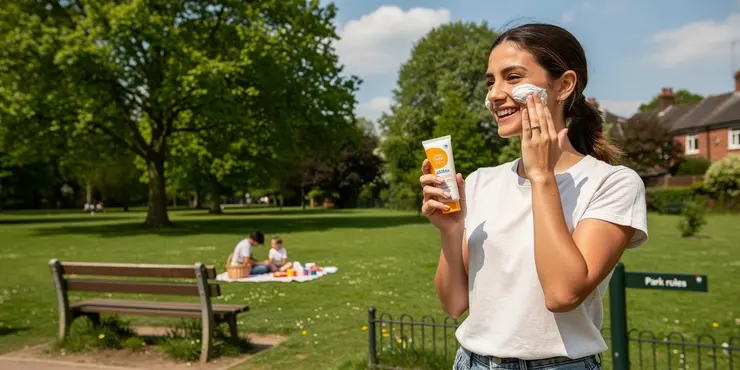
How does sunscreen with SPF 20 compare to SPF 50?
Relevance: 75%
-

What SPF level is recommended to prevent sunburn?
Relevance: 68%
-

Is a higher SPF always better?
Relevance: 65%
-

Can makeup with SPF replace sunscreen?
Relevance: 60%
-

What does SPF stand for?
Relevance: 59%
-
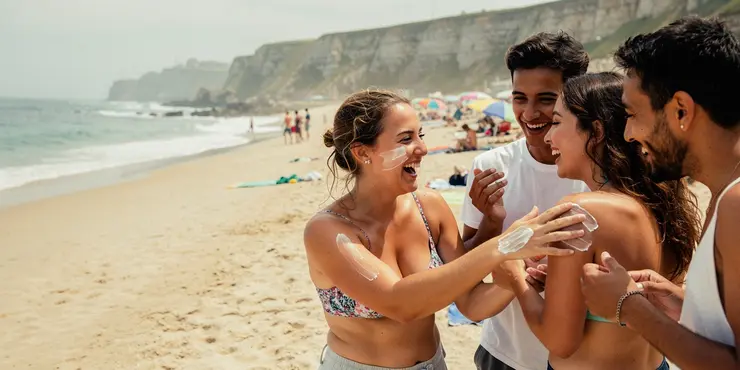
Do I need a different SPF for water-related activities?
Relevance: 57%
-

Should I use a different SPF for my face and body?
Relevance: 56%
-
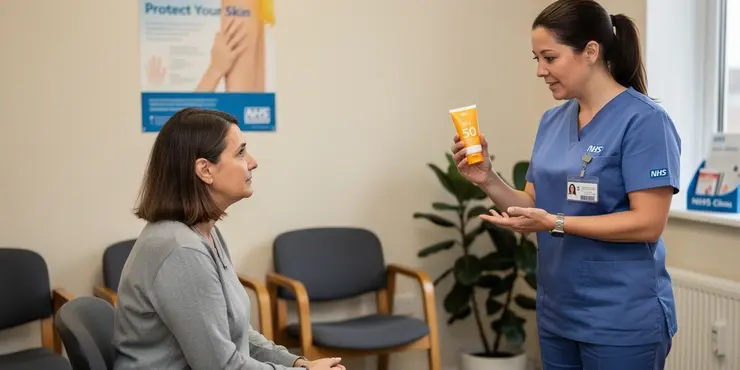
What SPF should I use if I have sensitive skin?
Relevance: 51%
-
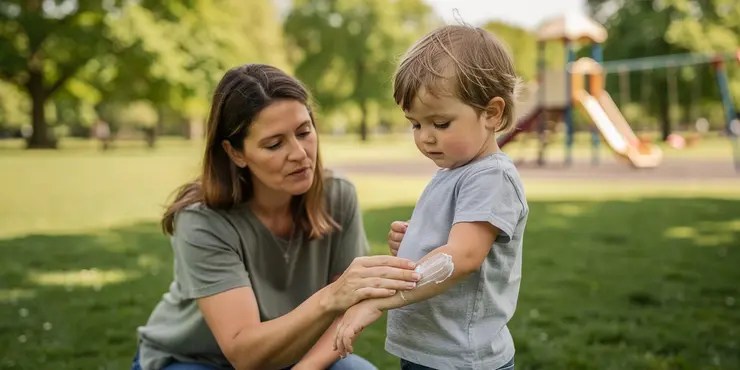
What SPF is best for children?
Relevance: 50%
-
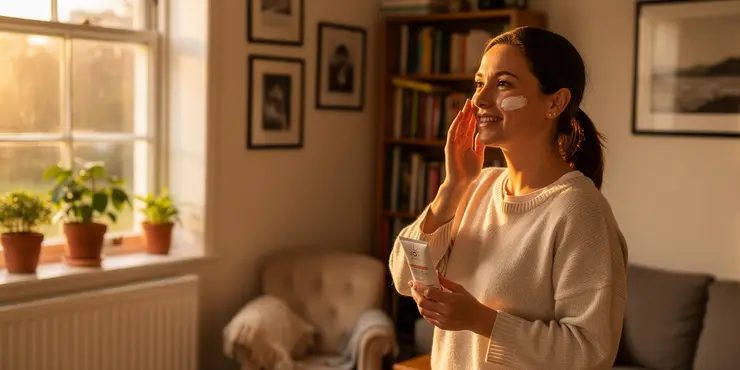
Is SPF 15 enough for everyday use?
Relevance: 48%
-
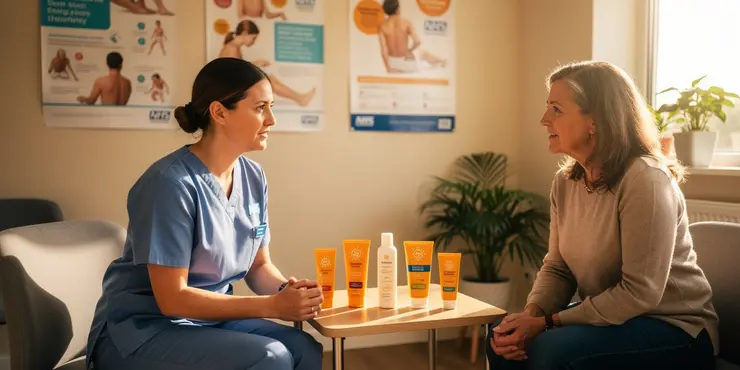
Which factor sunscreen should I use?
Relevance: 48%
-

Does tanning lotion prevent sunburn?
Relevance: 36%
-
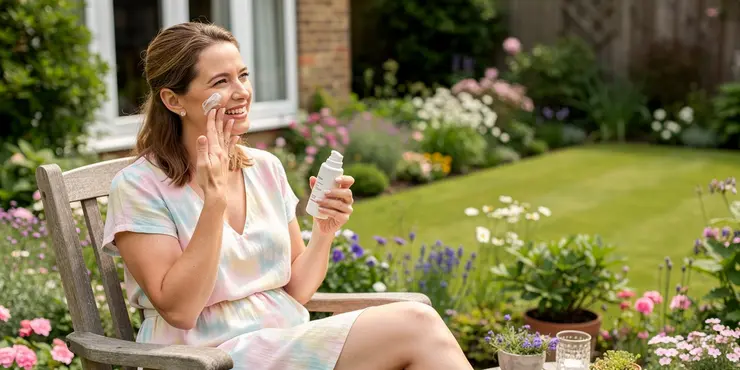
What SPF is recommended for fair skin?
Relevance: 26%
-
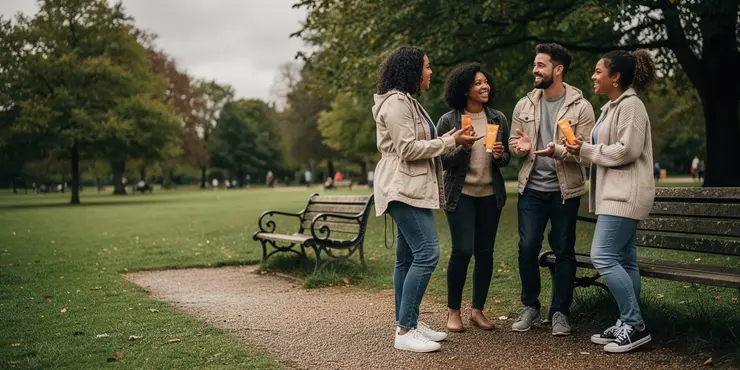
Do I need sunscreen on cloudy days?
Relevance: 24%
-

What to do if you're sunburnt
Relevance: 23%
-
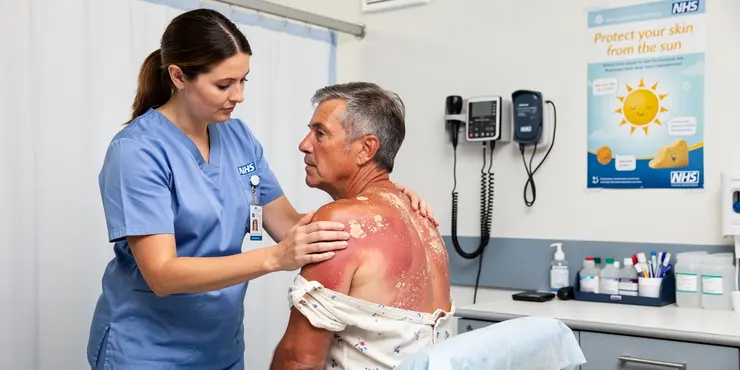
Can sunburn turn into a tan?
Relevance: 23%
-

How often should I reapply sunscreen?
Relevance: 23%
-
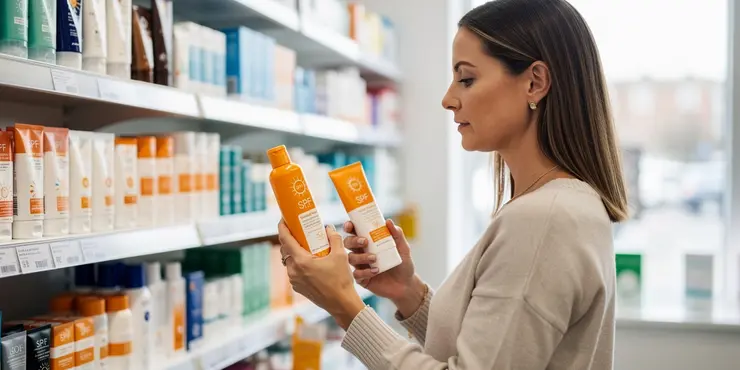
How do I choose the right SPF for daily use?
Relevance: 22%
-

What SPF should I use if I have darker skin?
Relevance: 22%
-

What is sunburn?
Relevance: 22%
-

How can I be sure that my sunscreen SPF rating is accurate?
Relevance: 21%
-

How can I keep children safe during a heatwave?
Relevance: 21%
-
Is pre-tanning in a sunbed a good way to prepare my skin for sun exposure?
Relevance: 20%
-

Are mobility scooters the same as electric wheelchairs?
Relevance: 20%
-

Why do some people not burn as easily as others?
Relevance: 20%
-
Does tanning on sunbeds reduce the risk of future sunburns?
Relevance: 19%
-

What activities should I avoid during a heatwave?
Relevance: 19%
-

Which sunscreen should I use?
Relevance: 19%
-
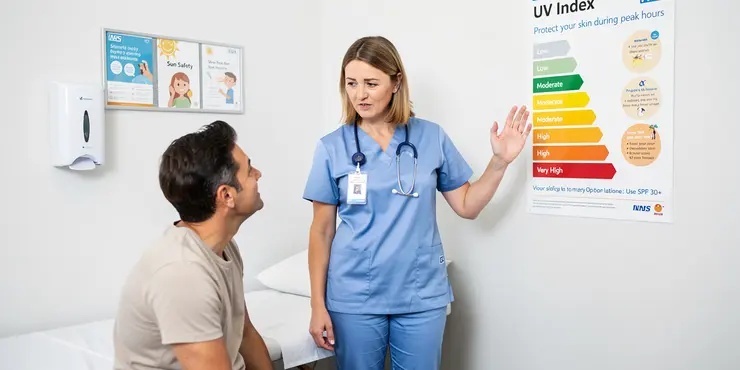
At what time of day is the sunburn risk highest?
Relevance: 19%
-
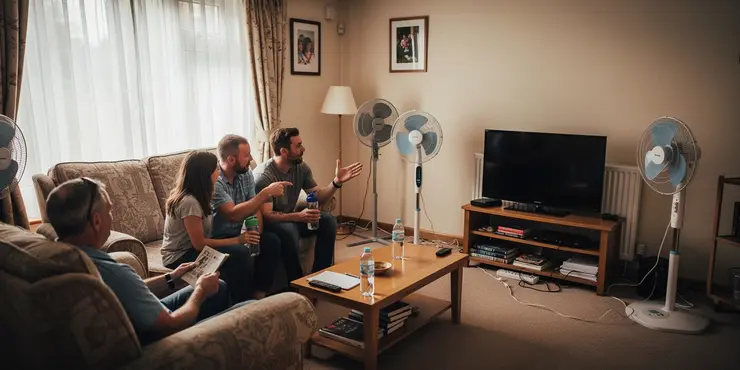
What should I do during a heatwave?
Relevance: 19%
-
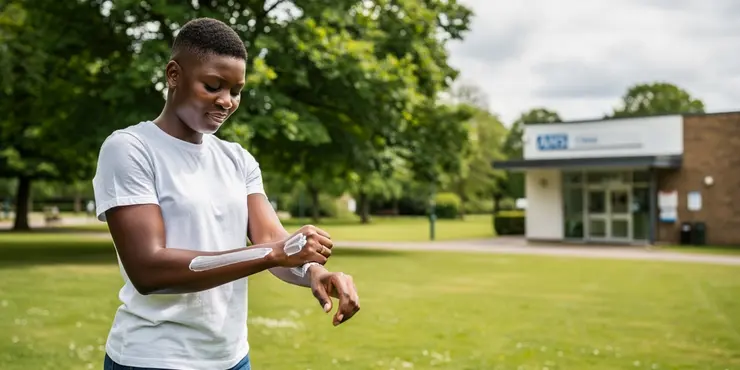
Can dark-skinned individuals get sunburned?
Relevance: 19%
-
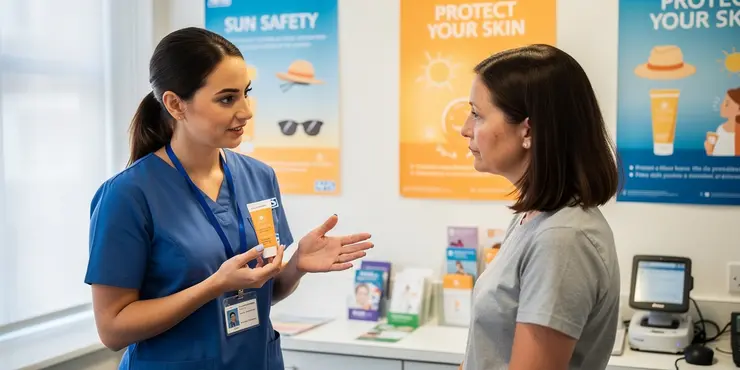
Can sunburn be prevented?
Relevance: 18%
-
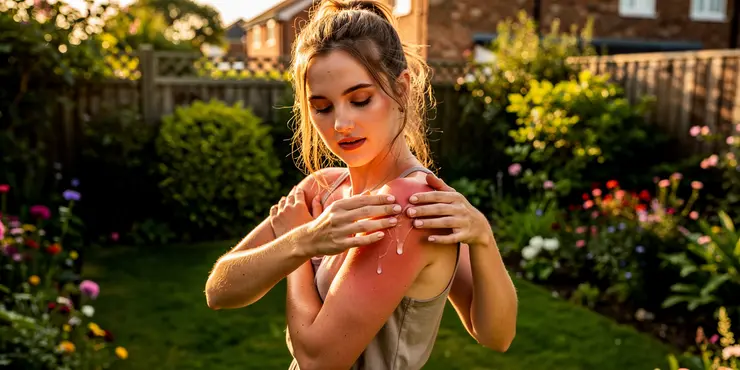
Self care - sunburn
Relevance: 18%
-

How can I prevent heatstroke during a heatwave?
Relevance: 17%
-

How can I reduce my exposure to pollen?
Relevance: 17%
-
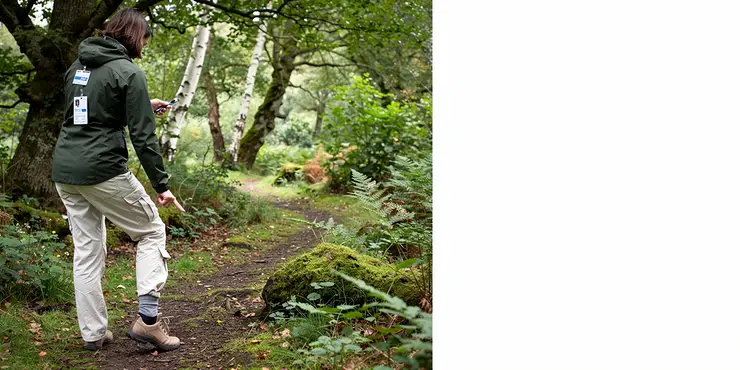
How do you prevent Lyme disease?
Relevance: 17%
-

Healthy Family Lifestyle Tips Post-Pandemic
Relevance: 16%
-

What is Sunburn?
Relevance: 16%
-
Do sunbeds help improve skin tone and texture?
Relevance: 15%
Understanding SPF
Sun Protection Factor, commonly referred to as SPF, measures how well a sunscreen can protect your skin from UVB rays, the kind of radiation that causes sunburn and contributes to skin cancer. SPF is a crucial factor to consider when selecting a sunscreen product, especially if you plan to be outdoors all day. In the UK, where the weather can be quite variable, it's essential to choose the right SPF to ensure adequate protection.
Recommended SPF for All-Day Outdoor Activities
If you're going to be outside all day, whether it's for work or leisure, you should use a broad-spectrum sunscreen with an SPF of at least 30. An SPF 30 sunscreen blocks approximately 97% of UVB rays. For those with fairer skin tones, sensitive skin, or if you are prone to burning, a higher SPF of 50 might be more suitable, as it offers slightly more protection by blocking about 98% of UVB rays. Though no sunscreen can provide 100% protection, higher SPF levels offer more coverage against harmful sun exposure.
Importance of Broad-Spectrum Protection
While SPF measures protection against UVB rays, it's important to choose a sun cream or sunscreen that also protects against UVA rays. These rays penetrate deeper into the skin and contribute to premature aging and skin cancer. Look for products labeled as "broad-spectrum," which ensures they offer protection against both UVA and UVB rays. This is especially crucial if you are outdoors for extended periods.
Reapplication and Water Resistance
Regardless of the SPF level you choose, reapplication is key to maintaining effective sun protection throughout the day. Sunscreen should be reapplied every two hours, or more often if you are sweating or swimming, even if the product is labeled as water-resistant. Water-resistant sunscreens can withstand water exposure for a set period, usually 40 to 80 minutes, but reapplication is still necessary to maintain protection.
Consideration of Skin Type and Conditions
Your skin type and any specific conditions should influence your sunscreen choice. People with sensitive skin or conditions like rosacea may require a sunscreen formulated for sensitive skin, often mineral-based, which contains ingredients like zinc oxide or titanium dioxide. These provide physical barriers to UV rays and are less likely to cause irritation.
Conclusion
For UK residents planning to spend an entire day outdoors, using sunscreen with at least SPF 30, broad-spectrum coverage, and water resistance is advisable. Remember to reapply regularly and be mindful of specific skin needs. By taking these steps, you can enjoy outdoor activities while minimizing the risk of sun damage and maintaining healthy skin.
What is SPF?
SPF means Sun Protection Factor. It tells you how well a sun cream or sunscreen can keep you safe from UVB rays. UVB rays can burn your skin and cause skin cancer. It's very important to think about SPF when choosing a sunscreen. This is true if you are going to be outside all day. In the UK, the weather can change a lot, so picking the right SPF is important to stay safe.
What SPF Should I Use for Long Outdoor Activities?
If you will be outside all day for fun or work, use a sunscreen with SPF 30 or more. SPF 30 stops about 97 out of every 100 UVB rays. If you have light skin or skin that burns easily, think about using SPF 50. It stops about 98 out of every 100 UVB rays. No sunscreen stops 100% of UVB rays, but high SPF helps protect your skin better.
Why is Broad-Spectrum Important?
SPF tells us how well sunscreen stops UVB rays. But we also need sunscreen that stops UVA rays. UVA rays go deep into the skin. They can make your skin look older and cause skin cancer too. Look for sun creams or sunscreens that say "broad-spectrum." This means they protect against both UVA and UVB rays, which is super important if you are outside for a long time.
Putting on More Sunscreen and Water Safety
No matter what SPF you choose, put on more sunscreen every two hours. Do this even more if you swim or sweat a lot. Some sunscreens say they resist water, but you still need to put on more. Water-resistant sunscreen lasts about 40 to 80 minutes in water, so remember to reapply to stay safe.
Think About Your Skin Type
Your skin type matters when picking a sunscreen. If you have sensitive skin or skin problems like rosacea, you might need a special sunscreen. These sunscreens are often mineral-based. They have things like zinc oxide or titanium dioxide. They act like shields to block the sun and don't irritate the skin as much.
Conclusion
If you live in the UK and plan a long day outside, use sunscreen with at least SPF 30. Make sure it is broad-spectrum and water-resistant. Don't forget to reapply often and think about what your skin needs. Doing these things helps you enjoy being outside while keeping your skin safe and healthy.
Frequently Asked Questions
What SPF level is recommended for all-day outdoor activities?
It is recommended to use an SPF of at least 30 if you are spending a full day outdoors.
Should I use a higher SPF than 30 for intense sun exposure?
Yes, for intense sun exposure, consider using SPF 50 or higher for extra protection.
Is SPF 15 sufficient for a day outdoors?
SPF 15 may not provide adequate protection for long periods outdoors; opt for SPF 30 or higher.
Does a higher SPF last longer on the skin?
No, SPF number relates to protection level, not duration. Reapply sunscreen every 2 hours regardless of SPF.
How often should I reapply SPF 50 sunscreen while outdoors?
Reapply every 2 hours, or more frequently if swimming or sweating.
Is SPF 100 much better than SPF 50?
SPF 100 offers slightly more protection, but SPF 50 is generally sufficient for most uses.
What factors should I consider when choosing an SPF?
Consider your skin type, time outdoors, intensity of sun exposure, and any physical activities.
Is an SPF 30 sunscreen effective for both UVA and UVB protection?
Yes, make sure it is broad-spectrum to protect against both UVA and UVB rays.
Does using a higher SPF mean I can stay in the sun longer?
A higher SPF provides more protection but does not mean you should extend sun exposure without reapplying.
Can I use the same SPF on my face and body?
Yes, but you might prefer a sunscreen specially formulated for the face to avoid breakouts.
What if I have sensitive skin and need to be outdoors all day?
Choose a sunscreen labeled for sensitive skin, often mineral-based, with an SPF of 30 or higher.
Does cloudy weather change the SPF recommendation?
No, UV rays penetrate clouds. Use at least SPF 30 even on cloudy days if you will be outdoors all day.
What is the difference between SPF 30 and SPF 50?
SPF 50 blocks about 98% of UVB rays, while SPF 30 blocks about 97%. The difference is minimal but SPF 50 offers more protection.
Can I use sunscreen from last year if it's SPF 30?
Check the expiration date. If it is not expired, it should still be effective.
Do I need more than SPF 50 if I’m sweating a lot when outdoors?
Use water-resistant sunscreen and reapply more often, but SPF 50 is generally adequate.
Is SPF 30 enough for people with fair skin?
People with fair skin might prefer SPF 50 for added protection during long outdoor exposure.
How does SPF protect your skin?
SPF measures a sunscreen's ability to protect against UVB rays, which cause sunburn.
Is SPF the only factor to consider for sun protection?
No, also consider wearing hats, sunglasses, and protective clothing for full sun protection.
What percentage of UVB rays does SPF 30 block?
SPF 30 blocks about 97% of UVB rays.
If I tan easily, is SPF 15 enough for a day outdoors?
Even if you tan easily, SPF 30 or higher is recommended for adequate protection all day outdoors.
What SPF should you use for a day outside?
If you are going to be outside all day, you should use sunscreen with a high SPF.
SPF 30 or higher is good.
Sunscreen helps protect your skin from the sun.
Remember to put more sunscreen on every 2 hours.
This keeps your skin safe from getting burned.
You can use an alarm on your phone to remember when it's time to put more on.
When you are outside all day, it is a good idea to use sunscreen with SPF 30 or more.
Is SPF 30 enough for very strong sun?
SPF is a number that tells us how good sunscreen is at protecting our skin from the sun.
If you are in very strong sun, like at the beach or in the mountains, it's good to think about using sunscreen with a higher SPF than 30.
Remember to put on sunscreen every two hours and after swimming or sweating.
Ask a parent or friend to help you choose the right sunscreen.
If you are going to be in the sun for a long time, use sunscreen with SPF 50 or more. This will help protect your skin better.
Is SPF 15 enough for a day outside?
When you go outside, the sun can hurt your skin. People use sunscreen to protect their skin from the sun. Sunscreen has something called SPF, which stands for Sun Protection Factor.
If you want to know if SPF 15 is enough, it depends on some things:
- How long will you be outside? If you are outside for a long time, you might need stronger SPF.
- Is the sun very strong? If it is a very sunny day, you might need more protection.
- What time of day will you be outside? The sun is strongest in the middle of the day.
- Are you swimming or sweating a lot? Water and sweat can make sunscreen come off, so you might need to reapply.
SPF 15 is okay for some people, but others might need SPF 30 or more. It is always a good idea to wear a hat and sunglasses too!
If you are not sure, ask an adult for help. Or you can use a phone or tablet to find more information.
SPF 15 might not keep your skin safe if you stay outside for a long time. It's better to use SPF 30 or more.
Does sunscreen with a higher SPF stay on your skin for more time?
Sunscreen helps protect your skin from the sun. SPF is a number that shows how strong the sunscreen is. A higher SPF number means more protection.
But, SPF does not tell us how long the sunscreen stays on your skin. You should put on more sunscreen every 2 hours, even if it has a high SPF.
Always follow the instructions on the sunscreen bottle. Using sunscreen, wearing hats, and staying in the shade are good ways to stay safe in the sun.
If you find reading hard, you can:
- Ask someone to read it with you.
- Use a reading pen to help understand the words.
- Watch a video about how to use sunscreen.
No, the SPF number tells you how strong the sunscreen is, not how long it lasts. Put on more sunscreen every 2 hours, no matter what the SPF is.
How often should I put on SPF 50 sunscreen when outside?
When you are outside, put on SPF 50 sunscreen every 2 hours.
If you swim or sweat a lot, put it on more often. Do it after swimming or if you get wet.
You can use a timer on your phone to remind you.
Put sunscreen on again every 2 hours. If you swim or sweat, put it on more often.
Is SPF 100 Better Than SPF 50?
SPF is a number on sunscreen. It tells you how long the sunscreen will protect your skin from the sun. SPF 100 and SPF 50 are both very strong. They both help stop sunburn. But SPF 100 protects a little more than SPF 50.
Remember to put sunscreen on every 2 hours. Also, wear a hat and sunglasses to stay extra safe from the sun.
SPF 100 gives a little more protection, but SPF 50 is usually good enough for most people.
What things should I think about when picking sunscreen?
Picking the right sunscreen can be tricky. Here are some things to help you:
- Look for SPF 30 or higher. SPF helps protect your skin from the sun.
- Make sure it says "broad spectrum" on the bottle. This means it protects from both UVA and UVB rays.
- If you are going swimming or will be sweaty, pick water-resistant sunscreen.
- Think about your skin. If you have sensitive skin, pick a sunscreen made for that.
Try using a reminder app to remember to reapply sunscreen every 2 hours when you're outside.
Think about your skin type, how much time you spend outside, how strong the sun is, and any sports or activities you do.
Does SPF 30 sunscreen protect from UVA and UVB rays?
SPF 30 sunscreen is good at stopping most UVB rays from the sun.
But, to be safe from both UVA and UVB rays, look for "broad-spectrum" on the bottle.
If it says "broad-spectrum," it helps protect your skin from both kinds of rays.
Remember to put sunscreen on 15 minutes before going outside and use it again every two hours.
Using a hat and wearing sunglasses can help protect you from the sun too.
Yes, choose sunscreen that protects your skin from both UVA and UVB rays. This is called broad-spectrum protection. It keeps your skin safe in the sun.
Can I stay in the sun longer with a higher SPF?
SPF is a number on your sunscreen bottle. It tells you how well the sunscreen protects your skin.
A higher SPF number means more protection. But it doesn't mean you can stay in the sun for a long time without reapplying.
Remember to wear a hat and sunglasses. Find shade when the sun is strong. Reapply sunscreen every two hours, or after swimming or sweating.
If you need help reading, you can ask someone you trust to read with you.
A higher SPF gives you more protection from the sun. But this does not mean you can stay in the sun longer without putting sunscreen on again.
Can I Use the Same Sun Cream on My Face and Body?
Yes, you can use the same sun cream for your face and body.
Some people like special sun cream for their face. This is because face sun cream can be gentle on the skin and less sticky.
If you use the same sun cream, make sure it feels good on your skin and protects you from the sun.
Here are some tips to help:
- Look for sun cream that says "broad spectrum." It protects from all kinds of sun rays.
- Choose a sun cream with SPF 30 or higher.
- Apply sun cream every 2 hours when you're outside.
- Ask an adult if you have questions about sun cream.
Yes, you can use sunscreen on your face. But it's better to use a sunscreen made for faces to stop spots.
I have sensitive skin, and I need to be outside all day. What should I do?
Pick a sunscreen that says it is for sensitive skin. It should have minerals in it and an SPF of 30 or more.
Does cloudy weather change the SPF recommendation?
Does cloudy weather mean you need to use a different sunscreen number?
When it's cloudy, the sun rays can still hurt your skin. You should still use sunscreen with the same number.
Use a sunscreen with at least SPF 30. SPF means how strong the sunscreen is.
Ask someone if you need help picking sunscreen.
No, clouds do not stop UV rays. Put on sunscreen with at least SPF 30 if you are going to be outside all day, even when it's cloudy.
How are SPF 30 and SPF 50 different?
SPF is a number on sunscreen. It helps you know how strong it is. SPF 30 and SPF 50 are both types of sunscreen.
SPF 30 protects your skin and lets in a little sun. SPF 50 protects more and lets in less sun.
You can use sunscreen to keep your skin safe from the sun. Remember to put more on after swimming or if you sweat a lot.
If you need help, use pictures to remember when to put sunscreen on.
SPF 50 stops about 98% of the sun's UVB rays. SPF 30 stops about 97% of the UVB rays. The difference is small, but SPF 50 is better at protecting your skin.
Can I use sunscreen from last year?
Check the date on the bottle. If it is out of date, buy new sunscreen.
If it is still good, you can use it.
Here are some tips to help you:
- Look for a use by or expiry date on the bottle.
- If the sunscreen smells different or has changed color, buy a new one.
- Always shake the bottle before you use it.
- Store sunscreen in a cool place.
If you need help reading, use a friend or a reading app like Text to Speech to read labels for you.
Look at the date on the package. If it is not past this date, it should still work.
Do I need stronger sunscreen than SPF 50 if I sweat a lot outside?
SPF 50 is strong sunscreen. If you sweat a lot, you might need to put it on more often. Choose sunscreen that says "water-resistant" or "sweat-resistant" on the bottle. This helps it stay on your skin better.
Ask a grown-up or a friend to help you if you are not sure which sunscreen to buy. They can help you read the labels. You can also set a timer to remind you to put sunscreen on again after some time.
Use sunscreen that does not wash off in water. Put it on more often. SPF 50 is usually enough.
Is SPF 30 good for people with light skin?
When you have light skin, the sun can burn your skin easily. Using a sunscreen with SPF 30 can help protect your skin. SPF 30 is good, but sometimes, SPF 50 might be better to use. It is also very important to put sunscreen on every two hours and after swimming or sweating. Wearing a hat and sunglasses can also help you stay safe in the sun.
If you have light skin, it is good to use SPF 50 sunscreen. It helps protect your skin when you are outside for a long time.
How does SPF keep your skin safe?
SPF tells us how well sunscreen can stop sunburn from UVB rays.
Is SPF the only thing to think about for sun safety?
SPF is important. It helps keep your skin safe from the sun.
But, there are other things to do too:
- Wear a hat to cover your head.
- Put on sunglasses to protect your eyes.
- Wear clothes that cover your arms and legs.
- Stay in the shade when the sun is very strong.
- Use sunscreen with SPF and reapply it often.
Try using pictures or timers to remind you about sun safety.
No, just sunscreen is not enough. You should also wear a hat, sunglasses, and clothes that cover your skin to stay safe in the sun.
How much does SPF 30 sunscreen protect you from UVB rays?
SPF 30 sunscreen blocks most of the bad rays from the sun, called UVB rays. It blocks about 97 out of 100 UVB rays. This means it protects your skin from getting burned.
Helpful tip: Use sunscreen, wear a hat, and stay in the shade to keep your skin safe.
SPF 30 sunscreen blocks almost all of the sun's harmful rays. About 97% of them can't reach your skin when you use SPF 30.
If I get a tan easily, can I use SPF 15 for a day outside?
Here is the question in simple words:
- If your skin gets darker or you tan easily in the sun, is using sunscreen with SPF 15 enough when you are outside for a long time?
Helpful tips:
- Use sunscreen to protect your skin.
- Reapply every two hours, or after swimming or sweating.
- Wear a hat and sunglasses for extra protection.
- Use a phone app or timer to remind you when to reapply sunscreen.
If you get a tan easily, it's still important to use sunscreen. Use sunscreen that is SPF 30 or higher to keep your skin safe when you are outside all day.
Useful Links
This website offers general information and is not a substitute for professional advice.
Always seek guidance from qualified professionals.
If you have any medical concerns or need urgent help, contact a healthcare professional or emergency services immediately.
Some of this content was generated with AI assistance. We’ve done our best to keep it accurate, helpful, and human-friendly.
- Ergsy carfully checks the information in the videos we provide here.
- Videos shown by Youtube after a video has completed, have NOT been reviewed by ERGSY.
- To view, click the arrow in centre of video.
- Most of the videos you find here will have subtitles and/or closed captions available.
- You may need to turn these on, and choose your preferred language.
- Go to the video you'd like to watch.
- If closed captions (CC) are available, settings will be visible on the bottom right of the video player.
- To turn on Captions, click settings .
- To turn off Captions, click settings again.
More Items From Ergsy search
-

What SPF should I use if I am going to be outdoors all day?
Relevance: 100%
-

How does sunscreen with SPF 20 compare to SPF 50?
Relevance: 75%
-

What SPF level is recommended to prevent sunburn?
Relevance: 68%
-

Is a higher SPF always better?
Relevance: 65%
-

Can makeup with SPF replace sunscreen?
Relevance: 60%
-

What does SPF stand for?
Relevance: 59%
-

Do I need a different SPF for water-related activities?
Relevance: 57%
-

Should I use a different SPF for my face and body?
Relevance: 56%
-

What SPF should I use if I have sensitive skin?
Relevance: 51%
-

What SPF is best for children?
Relevance: 50%
-

Is SPF 15 enough for everyday use?
Relevance: 48%
-

Which factor sunscreen should I use?
Relevance: 48%
-

Does tanning lotion prevent sunburn?
Relevance: 36%
-

What SPF is recommended for fair skin?
Relevance: 26%
-

Do I need sunscreen on cloudy days?
Relevance: 24%
-

What to do if you're sunburnt
Relevance: 23%
-

Can sunburn turn into a tan?
Relevance: 23%
-

How often should I reapply sunscreen?
Relevance: 23%
-

How do I choose the right SPF for daily use?
Relevance: 22%
-

What SPF should I use if I have darker skin?
Relevance: 22%
-

What is sunburn?
Relevance: 22%
-

How can I be sure that my sunscreen SPF rating is accurate?
Relevance: 21%
-

How can I keep children safe during a heatwave?
Relevance: 21%
-
Is pre-tanning in a sunbed a good way to prepare my skin for sun exposure?
Relevance: 20%
-

Are mobility scooters the same as electric wheelchairs?
Relevance: 20%
-

Why do some people not burn as easily as others?
Relevance: 20%
-
Does tanning on sunbeds reduce the risk of future sunburns?
Relevance: 19%
-

What activities should I avoid during a heatwave?
Relevance: 19%
-

Which sunscreen should I use?
Relevance: 19%
-

At what time of day is the sunburn risk highest?
Relevance: 19%
-

What should I do during a heatwave?
Relevance: 19%
-

Can dark-skinned individuals get sunburned?
Relevance: 19%
-

Can sunburn be prevented?
Relevance: 18%
-

Self care - sunburn
Relevance: 18%
-

How can I prevent heatstroke during a heatwave?
Relevance: 17%
-

How can I reduce my exposure to pollen?
Relevance: 17%
-

How do you prevent Lyme disease?
Relevance: 17%
-

Healthy Family Lifestyle Tips Post-Pandemic
Relevance: 16%
-

What is Sunburn?
Relevance: 16%
-
Do sunbeds help improve skin tone and texture?
Relevance: 15%


